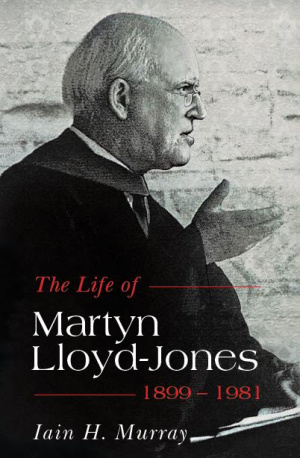The Life of Martyn
Lloyd-Jones 1899-1981,
The Banner of Truth Trust, 2013, 476pp
Although I never heard Martyn
Lloyd-Jones preach, his ministry had a huge effect on my early Christian life
as I hungrily devoured his sermons on Romans and Ephesians and other published
addresses besides. Wanting to know more about the man behind the messages I
read and very much enjoyed Iain Murray’s two volume biography of the preacher,
also published by the Banner of Truth. This edition of Murray’s life of
Lloyd-Jones is a condensed and updated version of the larger works, which
between them add up to over 1200 pages.
Lloyd-Jones’ story makes for a
gripping read. He turned his back on an eminent medical career in order to
become a preacher in Mission Hall in depression era Port Talbot. The Lord
blessed his work there and many were converted under his earnest and passionate
evangelical preaching. He was then called to Westminster Chapel in London,
where he served for thirty years. There he regularly preached to thousands who
were captivated by his powerful expository ministry.
Lloyd-Jones helped to spearhead
the recovery of Reformed teaching in the United Kingdom, both through his
preaching and by his involvement in organisations and initiatives such as IVF
(now UCCF), the Evangelical Library and the Westminster Conference. He helped
to found the London Theological Seminary.
His ministry was not without
controversy. In 1966 he urged evangelicals to come together rather than be
subsumed in the Ecumenical Movement. While many heeded his call and left the
mixed denominations, other evangelicals such as John Stott and J. I. Packer
followed a policy of integration rather than separation. Ironically the
preacher’s call for Evangelical Unity left evangelicals badly divided and much
ink has been spilt in trying to determine exactly what ‘the Doctor’ hoped to
achieve. Murray interacts with some of Lloyd-Jones’ critics in an attempt to
set the record straight.
This is not a critical biography
that aims at presenting a coolly detached view of is subject. Lloyd-Jones and
Murray were great friends and it shows. The author’s evident sympathy for the
physician-cum-minister shines through on every page and enables him to present
a convincing psychological and spiritual portrait of ‘the Doctor’. Murray’s
treatment of Lloyd-Jones’ boyhood years and the account he gives of his death
in the final chapter are especially moving.
Mrs Lloyd-Jones said that her
husband was ‘first of all a man of prayer and then an evangelist’. In our era
of media courting celebrity pastors, it is refreshing to read of an evangelical
leader who refused to stand for a press photographer. He preached not himself,
but Christ Jesus the Lord and did so in demonstration of the Spirit and power.
Through his books and recordings of his preaching being dead, Lloyd-Jones still
speaks to today, urging us to hold fast to the gospel that he lived to
proclaim and died believing. This condensed biography serves as a welcome
reminder of the man and his message.
* Reviewed for Evangelical Times.





